Why the iPhone 5 probably won't double Apple's market share
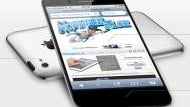
Gene Munster is an analyst with Piper Jaffray, and a reasonably good analyst too, depending on what he's trying to predict. He's quite good at having inside info as to when Apple will be releasing certain products, but his predictions for success or failure of products has had a spotty history. Once, he predicted that Apple would have $1.2 billion in app sales in 2009. Apple ended up with $4.2 billion in app sales for 2009. Predictions are difficult, we understand, and Munster has had a fair record of being right, or at least close. Now, Munster is claiming that the iPhone 5 will double Apple's market share in the smartphone world, and we're sorry to say that we can't really get behind that thinking.
A reputable source doesn't guarantee a reputable study
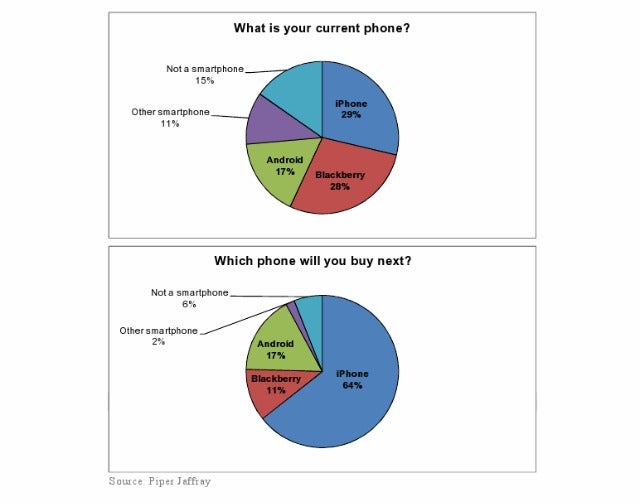
Other issues with the predictions
Aside from the very small sample size used to arrive at these numbers, there are two major issues that need to be considered when it comes to predicting the iPhone 5's success. First is competition. AT&T has been beefing up its Android selection and Windows Phone 7 selection, so the iPhone isn't the only option for AT&T customers. As the Q2 revenues showed for AT&T, Android is making a big push on the carrier, and iPhone 5 or not, this can only be a bad thing for Apple. Verizon has been the biggest seller of Android devices, and Android has continued to thrive even with the introduction of the iPhone 4 on Verizon. It's certainly likely that some Verizon customers will have skipped the iPhone 4 and Android to wait on the iPhone 5, but the competition is fierce out there and only getting tougher with more Androids on AT&T and WP7 Mango devices on the horizon.
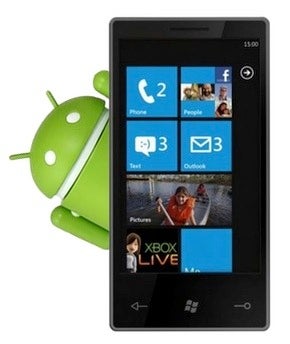
Also, there is no guarantee that the iPhone 5 will have LTE, and if it does, the added cost could change forecasts. So far, LTE enabled devices on Verizon have been on average $50 more expensive than comparable non-LTE devices. $200 has been the sweet spot for smartphones, so it's unclear how well a $250 iPhone would sell. The HTC ThunderBolt was said to outsell the iPhone on Verizon early on (although this survey seems pretty unreliable as well), so maybe the extra cost won't make much of a difference, but we just don't know right now.
Conclusion
Overall, it's very difficult to trust a study of just 216 people, but beyond that Apple certainly doesn't have an easy road ahead. Expectations and buzz around the iPhone 5 will be big, as they are with any Apple device these days, but just because there's buzz doesn't always mean much. The buzz has been big for every iPhone so far, and Android still took over the market just by sheer numbers.
It is still possible that the iPhone 5 will in fact double Apple's market share simply because feature phones and BlackBerries are likely going to continue to lose their market share. As feature phones continue to become a smaller and smaller piece of the overall mobile spectrum, that leaves more room for smartphones, and RIM has yet to prove that BlackBerries can stay competitive. Many analysts still see Windows Phone grow in popularity, and that climb may begin to ramp up during this purchasing cycle, but likely won't be at full steam, so that leaves a lot of space for iPhone and Android to grow. But, as yet Apple hasn't been the company benefitting from the decline of BlackBerry and feature phones, and doubling market share is a big task. It's possible, but these numbers don't give enough to believe it will happen.
Follow us on Google News









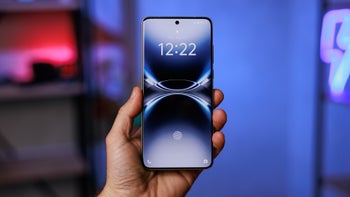
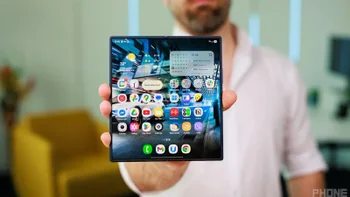
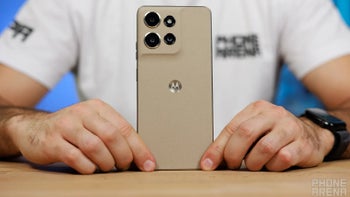
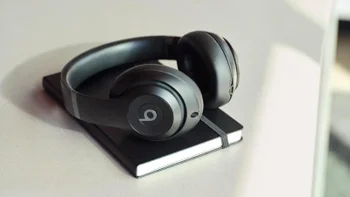
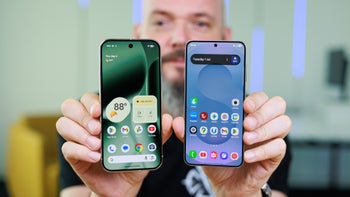
Things that are NOT allowed:
To help keep our community safe and free from spam, we apply temporary limits to newly created accounts: